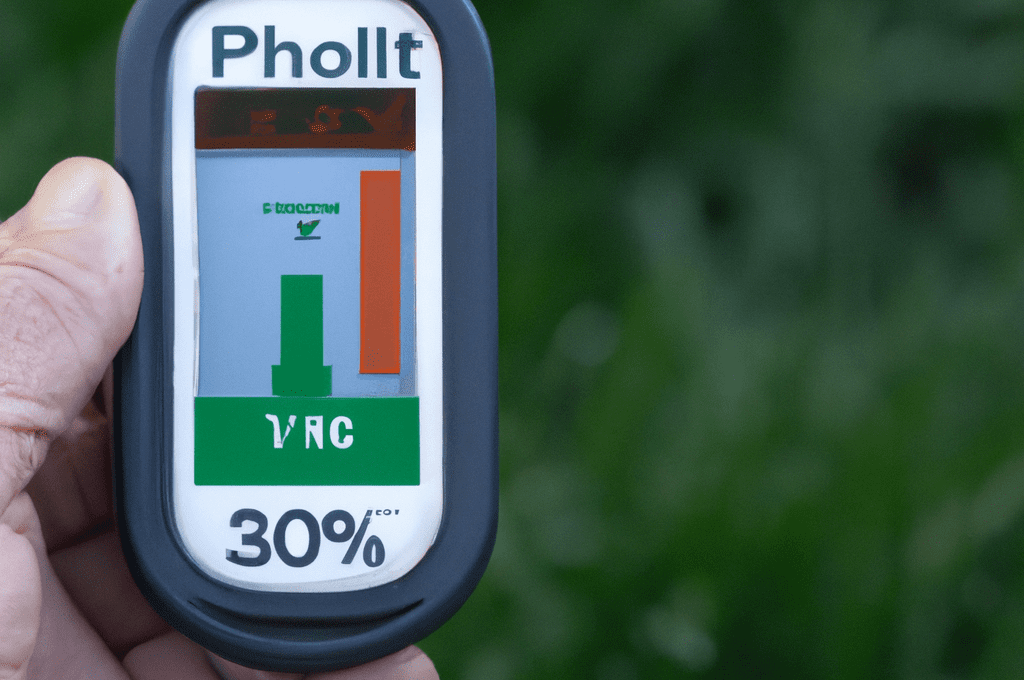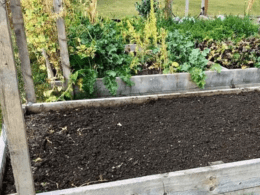Are you ready to take your gardening game to the next level? One of the most important factors for successful gardening is testing your soil’s pH. But don’t worry, it’s not as complicated as it may seem! With the right tools and knowledge, you can easily test your soil pH and make adjustments for optimal plant growth.
In this article, we’ll introduce you to the best and most accurate way to test soil pH: using a pH meter. We’ll guide you through the process step by step, so you can get accurate results without any confusion or frustration.
Plus, we’ll explain why testing soil pH is so important for your plants’ health and share some tips for adjusting pH levels if necessary. So let’s get started and make sure your plants have the best possible chance to thrive!
Quick Summary
- Testing soil pH is essential for successful gardening and landscaping.
- The best and most accurate way to test soil pH is by using a pH meter.
- Most plants grow well in soil with a pH range of 6.5-7, but some require acidic or alkaline soil.
- Soil pH can be adjusted by adding lime or sphagnum peat to increase alkalinity or acidity, respectively.
Why Test Soil pH?
You need to test your soil pH because it’s important for the success of your gardening and landscaping.
The pH level of your soil can make or break the growth and survival of your plants.
Some plants require acidic soil, while others need alkaline soil to thrive.
Knowing the pH level of your soil can help you choose the right plants for your garden and ensure that they are getting the nutrients they need.
Plants have different requirements when it comes to soil pH.
Most plants grow well in soil with a pH range of 6.5-7, but some plants like azaleas and blueberries require a specific pH level to thrive.
If the pH level of your soil is not appropriate for your plants, they may struggle or even die.
Testing your soil pH can help you adjust it by adding soil amendments, such as sphagnum peat or lime, to bring vitality back to your plants.
Using a pH Meter
Using a pH meter is the most precise method for determining the acidity or alkalinity of your soil. Follow these steps for accurate pH readings:
- Calibrate your pH meter before each use to ensure accurate readings.
- Troubleshoot any issues with pH meter readings by checking the probes for damage or debris and ensuring they’re fully submerged in the soil.
Dig a hole in the soil and remove any debris. Add distilled water to the hole until it’s full.
- Insert the probes of the pH meter into the water and wait for the reading to stabilize.
- Record the pH reading. A reading below 7 indicates acidic soil, above 7 is alkaline, and 7 is neutral.
Use the information to determine if soil amendments are needed to adjust the pH level for optimal plant growth.
pH meters provide a quick and easy way to test soil pH levels, but it’s important to calibrate the meter before each use to ensure accurate readings. Troubleshooting any issues with the meter can also help prevent false readings. By following these steps, you can get accurate and reliable pH readings to help you make informed decisions about your soil and plant health.
Benefits of Soil pH Testing
Discover the importance of testing soil pH and the impact it can have on your plants’ health and vitality. By testing the soil pH, you can determine the acidity or alkalinity level of the soil and adjust it accordingly to create the optimal growing conditions for your plants.
Soil pH can impact the availability of nutrients to plants, affecting their ability to grow and produce fruit or flowers. Knowing your soil pH can also help you select the right plants for your garden. Some plants thrive in acidic soil while others prefer alkaline soil.
Testing the soil pH can ensure that you are planting the right species in the right location, maximizing their growth potential and reducing the risk of plant failure. Ultimately, taking the time to test your soil pH can save you time, money, and frustration, allowing you to achieve a beautiful and thriving garden.
Frequently Asked Questions
Can pH meters be used to test the pH levels of water for aquatic plants?
Yes, pH meters can accurately test pH levels of water for aquatic plants. They are reliable tools for pH testing and provide precise readings for maintaining optimal pH levels needed for healthy growth of aquatic plants.
Are there any plants that can thrive in highly acidic or highly alkaline soil?
Plants in extreme pH levels can thrive, such as blueberries in acidic soil and clematis in alkaline soil. Acidic soil plants include azaleas, rhododendrons, and potatoes. Ensure proper soil pH for healthy plants and vibrant gardens.
How often should soil pH be tested in a garden or landscape?
To ensure healthy plants, test soil pH using the best testing methods like pH meters or strips. Frequency of testing depends on plant requirements and soil conditions. Test annually or after significant changes in the landscape.
Can soil pH affect the taste of fruits and vegetables grown in a garden?
Soil pH affects the harvest quality of fruits and vegetables. Adjusting pH can enhance the flavors of crops. Adding lime increases alkalinity, while adding sphagnum peat increases acidity. Use pH meters or test strips to ensure accurate adjustments.
How long do soil amendments take to change the pH levels of soil?
Soil amendments like lime can take several months to change pH levels depending on soil composition, moisture levels, and the amount of amendment used. Regular testing and patience will determine the effectiveness of lime application.









